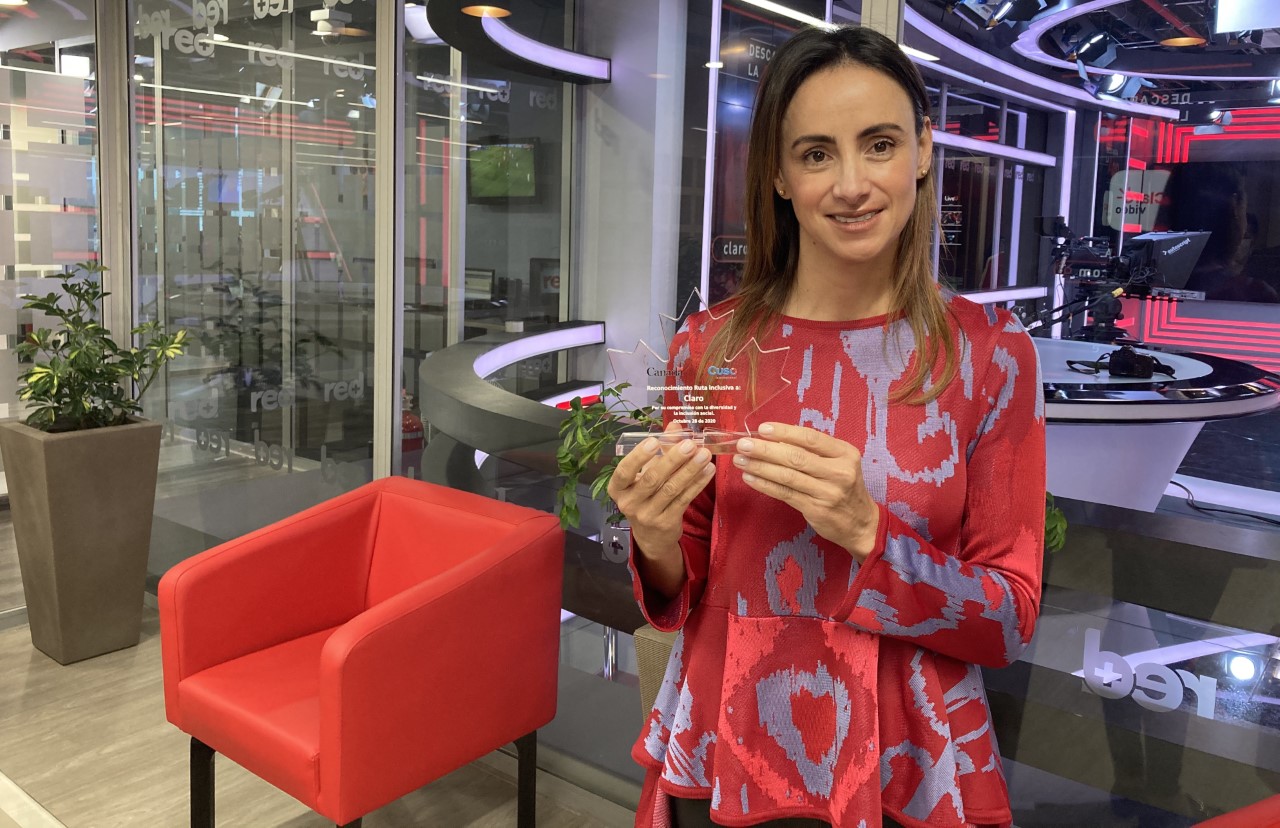Cuso International and the Government of Canada recognize organizational examples of gender equity and inclusion
News

For immediate release
Bogotá, October 29, 2020. Building diverse and inclusive work environments that promote the sustainability of organizations is increasingly important in Colombia. However, only a few organizations have managed to turn this intention into reality. Successful cases are AECSA, the Public Employment Agency SENA (Capital District), the Employment and Entrepreneurship Agency CAFAM and Claro, and its sustainability program Claro por Colombia. For this reason, the Government of Canada and Cuso International awarded these organizations with the Ruta Inclusiva Bogotá Recognition.
These organizations stand out due to their effective integration of women in vulnerable situations, young people without work experience, people with disabilities, victims of the armed conflict, the LGBTIQ+ community and migrants, among other populations, into the work force. A process that has generated a positive impact on the working conditions of nearly 12,000 employees. In addition, the recognized Official Job Intermediation Agents committed to promoting an organizational transformation of nearly 9,000 companies in the coming months.
To support these organizations in building healthy work environments free of discriminations, Cuso International provided them with technical assistance under the Ruta Inclusiva initiative, which includes selection and recruitment practices of diverse and vulnerable populations, the prevention of workplace harassment, inclusive communication, and work-life balance, among other topics. Once they implemented innovative and effective initiatives for their work teams, these organizations earned the Ruta Inclusiva Recognition.
According to Alejandro Matos, Director of Cuso International in Colombia, many organizations are interested in implementing a gender equity, diversity, and social inclusion approach in their operations, but do not know how to do so ”While Ruta Inclusiva helps companies find a way to make a real change, only they can advance towards hiring people, regardless of their sexual preference, origin, age, gender, physical condition and socioeconomic level, among others.”
Contributions
Since 2017, Cuso has developed the Ruta Inclusiva initiative with fifty-six companies. Twenty-six have been recognized in Barranquilla, Bogotá, Cali, Cartagena and Medellín, to have demonstrated contributions to decent work and labour inclusion in the country.
Some highlights:
AECSA: is the first company in the BPO (Business Process Outsourcing) sector in Colombia and the first in the conciliation and portfolio recovery sector in the world to be certified as a B Corporation. This certification is granted to organizations that seek to promote business development, while ensuring the wellbeing of people, communities, and the environment. Given its constant learning process to generate a positive impact on society, the company participated in the Ruta Inclusiva initiative to strengthen job opportunities for populations that had previously been unable to access decent employment. Today, more than 77% of its 3,000 workers are part of these social groups.
Public Employment Agency SENA: as a public entity that connects talent in the country, it has contributed to improving the occupational profile and levels of labour and productive inclusion of more than twenty social groups in vulnerable situations. Following the Inclusive Route, the agency implemented various tools for its occupational advisors to convince more companies of the importance of labour inclusion for their businesses and the country. In this way, people in vulnerable situations, such as 2,330 workers with disabilities, were trained and 317 have been placed in formal employment this year.
Employment and Entrepreneurship Agency CAFAM: guaranteeing individuals the right to work is the raison d’être of this entity who, after participating in the Ruta Inclusiva, incorporated strategies to promote the employment of diverse populations among the companies that use its services. They have sought to help workers develop their potential and access more formal employment opportunities, even in this time of COVID-19. In the first half of the year, 12,000 people were employed, 55% of whom were women.
Claro and Claro por Colombia: committed to the social and digital transformation of Colombia, Claro, along with Cuso International, developed labour inclusion for vulnerable populations which has contributed placing 192 people in partner companies and vendors within its value chain, including women, armed conflict victims, youth, Venezuelan and binational migrants.. The Ruta Inclusiva initiative has benefitted more than 8,000 employees. The biggest achievement of this process is that the experience, knowledge, competencies and skills of men and women are valued equally.
The recognition has opened an opportunity to identify best practices and share them with different regions of Colombia. This year Cuso International held an exchange of experiences with Prosperidad Social and the Presidential International Cooperation Agency (Agencia Presidencial de Coooperación Internacional APC-Colombia as it stands in Spanish), where there was a knowledge transfer among Official Job Intermediation Agents such as Cajas de Compensación and employment agencies of 13 municipalities located in 10 departments.
-30-
About Cuso International
Cuso International is a Canadian charity focused on ending poverty and inequality. It works in partnership with governments, civil society organizations, multilateral agencies, and the private sector. It delivers programs aimed at advancing gender equality, promoting the empowerment of women and girls, and improving economic opportunities for young people. Each year, Cuso mobilizes hundreds of skilled volunteers who work alongside local partners to maximize their impact and build capacity.
In Colombia our main objective is to promote social inclusion through sustainable economic development. Through the SCOPE project, supported by the Government of Canada, we have enabled women, young people, and victims of the armed conflict to access formal jobs.